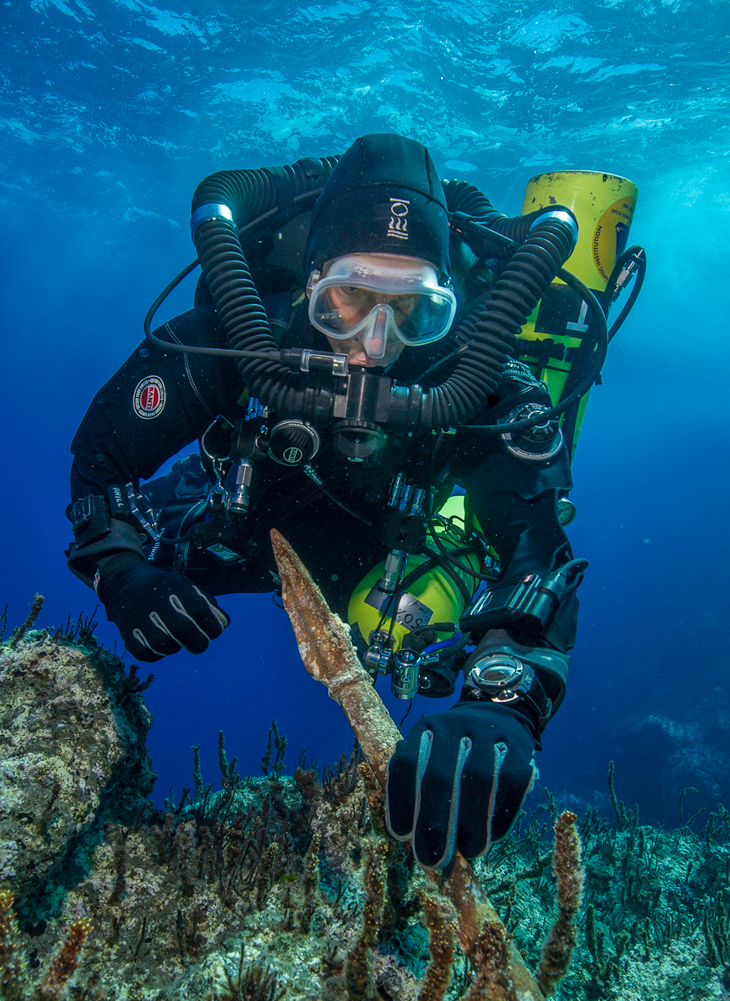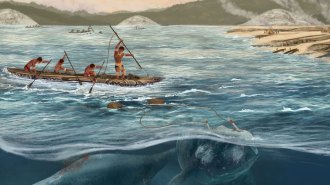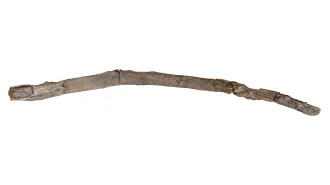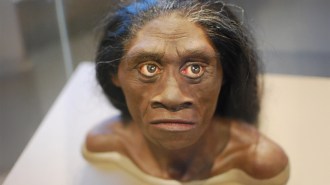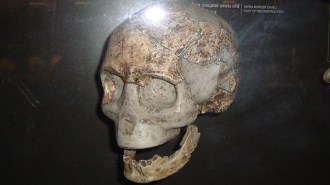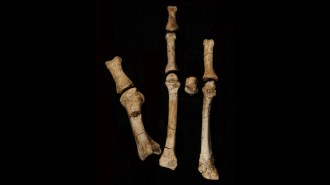Ancient Greek shipwreck found to be world’s largest
Much of vessel along with its luxury cargo have survived over 2,000 years underwater
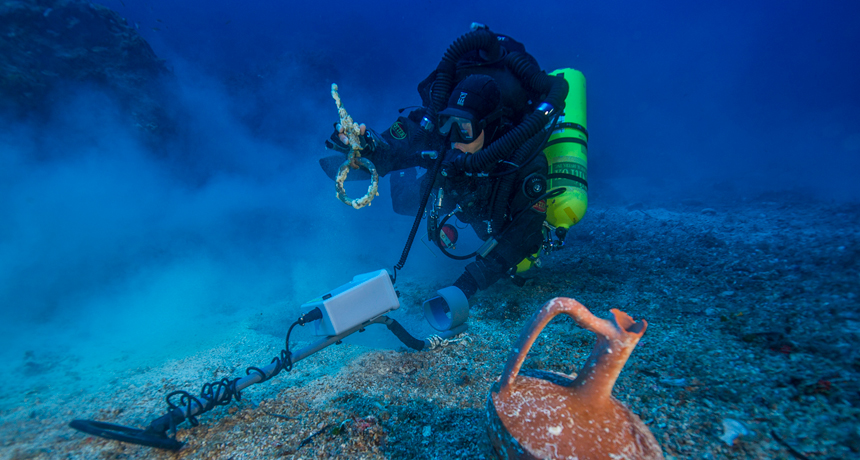
GO DEEP Wielding a metal detector, a diver discovers a bronze rigging ring and a ceramic jug among the sunken remains of an ancient Greek ship.
Brett Seymour, ©Return to Antikythera 2014
